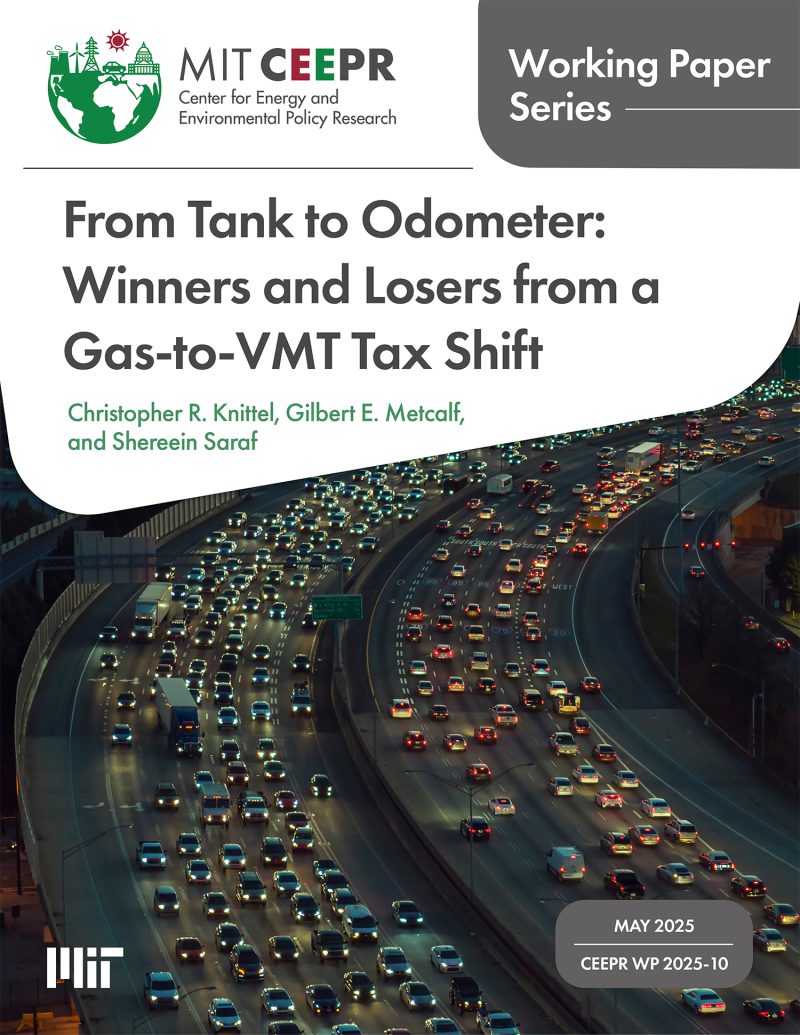From Tank to Odometer: Winners and Losers from a Gas-to-VMT Tax Shift
Christopher R. Knittel, Gilbert E. Metcalf, and Shereein Saraf
May 2025
With the increase in fuel economy of the personal transportation fleet along with the increased penetration of hybrid and electric vehicles, federal motor vehicle fuel excise tax revenue has been steadily declining. This has led to calls for finding a replacement for this tax. One option is to replace the gas tax with a vehicle miles traveled (VMT) tax. To investigate the impact of such a tax swap, we combine data from the 2017 National Household Transportation Survey (NHTS) and the American Community Survey (ACS). Using machine learning techniques, we generate estimates of VMT and gasoline tax collections at the census tract level. This allows us to explore the distributional implications of this tax swap at a geographically disaggregated level. We find, as have previous researchers, that this tax swap is modestly progressive. Our more granular geographic analysis highlights striking disparities not previously reported. We find that rural areas and census tracts in the center of the country generally benefit from this tax swap, while urban and bicoastal areas generally experience higher taxation. Additionally, Republican-leaning districts, which overlap significantly with rural areas, see marked gains compared to Democratic districts. The results highlight the potential for a VMT tax to address longstanding inequities in transportation funding while offering a politically salient narrative.
Keywords: Energy, Taxation, Transportation, Incidence
JEL Codes: H22, H23, Q48, R48



